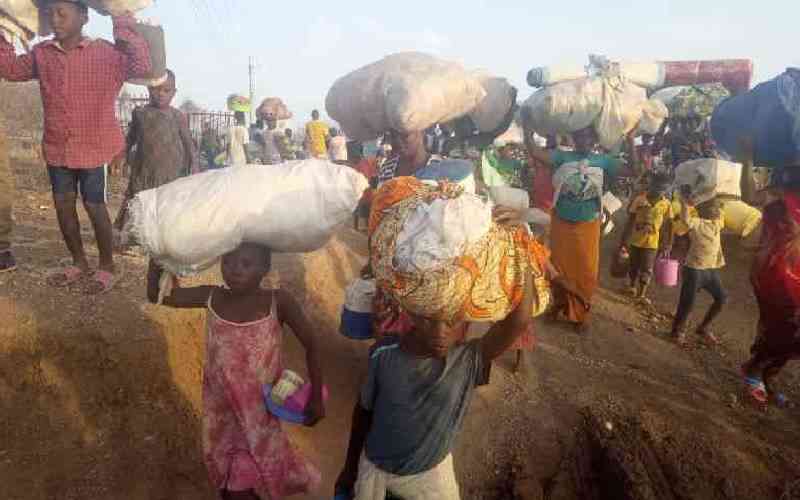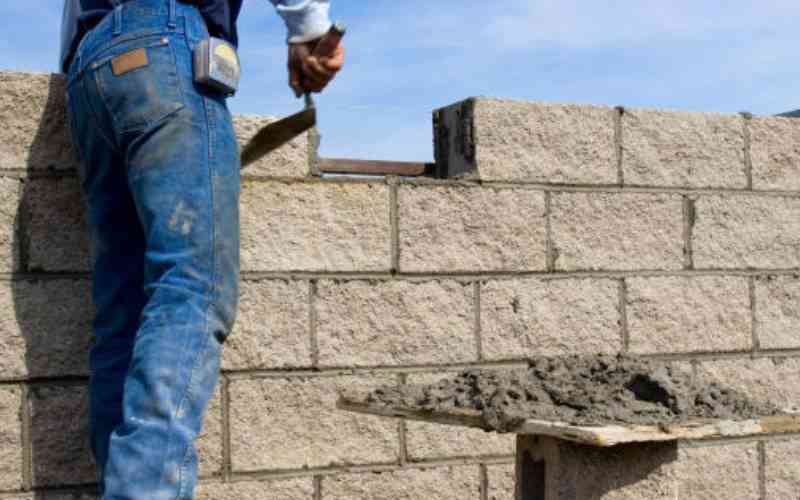Nairobi; Kenya: Looking after the homestead and caring for children as they wait for their men to return home from the grazing fields is the routine for most Turkana women.
However, a group of women have defied this culture and are engaging in income generating activities to improve their families and community.
The women, most of whom have little or no education, have joined the Lodwar Basketry and Cultural Market for Women where they weave baskets, mats and brooms for sale.
Considering Turkana County is semi-arid and has low food production, the women use the proceeds to buy food and other necessities.
Some of them have also bought land along River Turkwel where they irrigate sorghum and other food crops.
Most of these women have to walk for more than 10km to get to Lodwar town but they do not mind because they are sure they will not go back home empty handed.
Lucy Akeno Nawei, a mother of four, says she joined Lodwar Basketry when she was a girl.
“My mother used to weave baskets and since I was not going school, I spent time watching what she did and quickly learned how to weave. I passed by this place one day and saw many women weaving baskets and decided to join them. I used the income to support my brothers and sisters by buying them uniforms, pens and books,” says Akeno.
Weaving was an eye opener for Akeno who vowed that her children would not be illiterate like herself.
The story is the same for Esther Alimlim, a mother of eight. Although she is illiterate, all her children have acquired formal education and her last born is sitting the Kenya Certificate of Secondary Education exams this year.
Esther wakes up at dawn to start her long journey from Caanan to Lodwar. She attributes her endeavours to hard work and determination.
“At times you don’t sell anything but this does not stop you from working. One must be determined to achieve life’s goals,” she says.
Esther adds that women should not rely on their husbands for everything but should work hard to contribute to the family’s income.
Evalyne Elbit, the secretary of the group that was formed in the early 1980s says many women from the locality have benefited from the trade.
“The number of women joining the group kept increasing, forcing some of them to weave in the open as the structure they had could not accommodate all of them,” says Elbit. This, however, changed in 2009 when the Japanese Government funded the construction of a bigger shed.
Stay informed. Subscribe to our newsletter
The women contribute Sh200 every week towards an emergency fund and Sh500 for their individual member’s accounts.
At the end of every month, Elbit says, each member is required to contribute Sh1,000 to the group’s joint account.
“These targets motivate the women to work hard. Members can also get loans from the group’s savings,” says Elbit.
The women hold monthly meetings to evaluate their progress and encourage those who have lagged behind.
“We encourage and support each other, especially in times of need,” she says.
Though Lodwar is their main market, they also sell their wares in Kapenguria, West Pokot and Kitale towns in Trans Nzoia County.
Poor infrastructure is their biggest challenge and they hope it will improve to enable them reach many other markets. They also hope to launch open air markets around the country.
 The Standard Group Plc is a
multi-media organization with investments in media platforms spanning newspaper
print operations, television, radio broadcasting, digital and online services. The
Standard Group is recognized as a leading multi-media house in Kenya with a key
influence in matters of national and international interest.
The Standard Group Plc is a
multi-media organization with investments in media platforms spanning newspaper
print operations, television, radio broadcasting, digital and online services. The
Standard Group is recognized as a leading multi-media house in Kenya with a key
influence in matters of national and international interest.
 The Standard Group Plc is a
multi-media organization with investments in media platforms spanning newspaper
print operations, television, radio broadcasting, digital and online services. The
Standard Group is recognized as a leading multi-media house in Kenya with a key
influence in matters of national and international interest.
The Standard Group Plc is a
multi-media organization with investments in media platforms spanning newspaper
print operations, television, radio broadcasting, digital and online services. The
Standard Group is recognized as a leading multi-media house in Kenya with a key
influence in matters of national and international interest.








